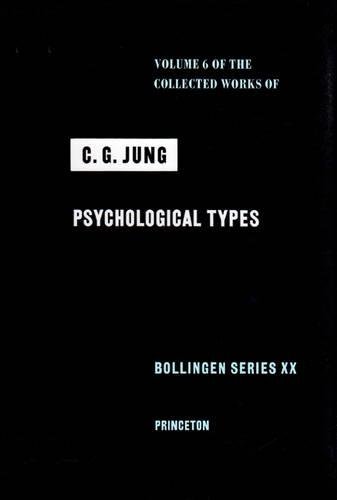Newly released
This book is new and will be uploaded as soon as it becomes available to us and if we secure the necessary publishing rights.

Psychological Types Book PDF
(0)
Author:
Carl G. JungNumber Of Reads:
66
Language:
English
Category:
Social sciencesSection:
Pages:
569
Quality:
excellent
Views:
704
Quate
Review
Save
Share
Book Description
One of the most important of Jung's longer works, and probably the most famous of his books, Psychological Types appeared in German in 1921 after a "fallow period" of eight years during which Jung had published little.
He called it "the fruit of nearly twenty years' work in the domain of practical psychology," and in his autobiography he wrote: "This work sprang originally from my need to define the ways in which my outlook differed from Freud's and Adler's. In attempting to answer this question, I came across the problem of types; for it is one's psychological type which from the outset determines and limits a person's judgment. My book, therefore, was an effort to deal with the relationship of the individual to the world, to people and things. It discussed the various aspects of consciousness, the various attitudes the conscious mind might take toward the world, and thus constitutes a psychology of consciousness regarded from what might be called a clinical angle."
In expounding his system of personality types Jung relied not so much on formal case data as on the countless impressions and experiences derived from the treatment of nervous illnesses, from intercourse with people of all social levels, "friend and foe alike," and from an analysis of his own psychological nature. The book is rich in material drawn from literature, aesthetics, religion, and philosophy. The extended chapters that give general descriptions of the types and definitions of Jung's principal psychological concepts are key documents in analytical psychology.
Carl G. Jung
Carl Gustav Jung, is a Swiss psychologist and founder of analytical psychology. Young says his intellectual life began with a dream he had at the age of three. He received a scholarship at the University of Basel to study medicine and his father died at the age of 20. Jung loved university life and devoured philosophical works, especially the works of Kant and Nietzsche, in addition to medical books and references, and he studied spirituality and supernatural phenomena. Young became a member of the Society for Public Speaking and Debating called the Zuqengia Club. Young was able to reveal something that was admired and appreciated by all: the human spirit. His ideas advocated the existence of two directions of the soul. One towards life affairs and the other towards the realm of spirituality. There, some things happened to Young and Young thought he should attend the necromancy. For two years, Young had been attending these sessions, with his cousin Helen Preswork being her psychic, and her late father, Samuel Preswork, being her mentor. And he stopped going to those sessions when Helen started to get caught up in these invocations and Young didn't know Helen was in love with him and everything she did to get his attention. Thus, Young had two personalities. The first character was immersed in life matters, and her feelings could explode in any emotional situation. As for the second character, she believes in superstitions and the world of the paranormal, as Jung felt that he was connected to the other world. He searches for the nature of that strange thing that enters the body at birth and leaves at death, and this led him to realize that his desired goal is psychiatry, which, starting in 1890, he began studying as a science and a profession at the same time. Jung began training in psychiatry in 1900, when he became an assistant at the Bergolslie Mental Hospital, a clinic attached to the University of Zurich and was under the direction of Dr. Eugene Blölru. Young's research continued under the supervision of this doctor until Jung developed in this field.
Book Currently Unavailable
This book is currently unavailable for publication. We obtained it under a Creative Commons license, but the author or publisher has not granted permission to publish it.
Rate Now
5 Stars
4 Stars
3 Stars
2 Stars
1 Stars
Psychological Types Quotes
Top Rated
Latest
Quate
Be the first to leave a quote and earn 10 points
instead of 3
Comments
Be the first to leave a comment and earn 5 points
instead of 3